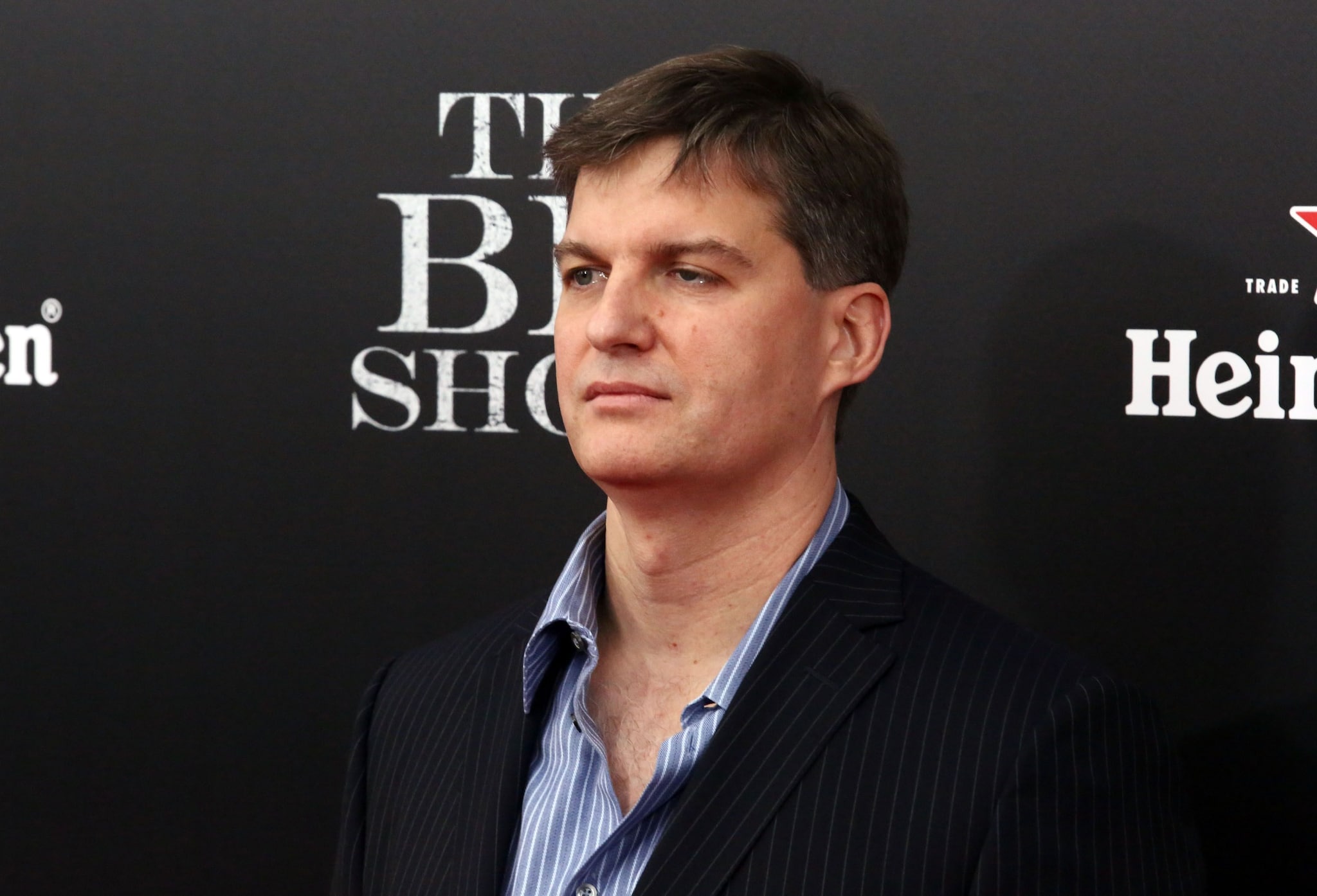Advertisement|Remove ads.
Michael Burry of 'Big Short' fame is closing his hedge fund
Investment advisers with more than $100 million in regulatory asset under management must generally register with the US Securities and Exchange Commission, according to its website. The deregistration raises the possibility that Burry is shuttering his hedge fund or closing it to outside investors. A March filing said the firm had around $155 million in AUM.

Michael Burry’s Scion Asset Management has terminated its registration status with the SEC.
The change took place on Nov. 10, according to a filing on the SEC website. Burry, who rose to fame for his 2008 bet against the US housing market, said in a social media post featuring a screenshot of the terminated status that he was “on to much better things Nov 25th.”
The hedge fund manager has previously warned about market exuberance, last month posting an image of his character from The Big Short movie and a warning that “sometimes, we see bubbles.”
Such comments have been interpreted as questioning the financial soundness of the AI boom, which has seen Nvidia Corp. become the first company whose market value passed $5 trillion. Scion disclosed in a third-quarter filing bearish wagers on Nvidia and Palantir Technologies Inc., another stock that’s jumped on artificial intelligence advances, earlier this month.
Scion Asset Management didn’t immediately return requests for comment. MarketWatch reported the filing earlier.
Investment advisers with more than $100 million in regulatory asset under management must generally register with the US Securities and Exchange Commission, according to its website. The deregistration raises the possibility that Burry is shuttering his hedge fund or closing it to outside investors. A March filing said the firm had around $155 million in AUM.
Burry shuttered a previous firm, Scion Capital, in 2008 after successfully prodding Wall Street banks in early 2005 to create credit-default swaps to bet against bonds backed by the riskiest home loans. The strategy paid off as borrowers defaulted, letting his investors more than quintuple their money from 2000 to 2008, according to Michael Lewis’s book “The Big Short.” Burry opened Scion Asset Management in 2013.
Palantir Bet
Burry’s post flagging Scion’s SEC status also detailed the precise nature of his bet against Palantir, saying he had spent about $9.2 million on options that let him sell its shares “at $50 in 2027.”
For the first quarter, Scion reported that it had liquidated almost its entire listed equity portfolio and bought put options on the chip giant, as well as a handful of US-listed Chinese tech giants.
The hedge fund manager posted another series of images to his account earlier this month, including a graphic from a Bloomberg News story on circular financing concerns surrounding Nvidia, among other firms.
The change took place on Nov. 10, according to a filing on the SEC website. Burry, who rose to fame for his 2008 bet against the US housing market, said in a social media post featuring a screenshot of the terminated status that he was “on to much better things Nov 25th.”
The hedge fund manager has previously warned about market exuberance, last month posting an image of his character from The Big Short movie and a warning that “sometimes, we see bubbles.”
Such comments have been interpreted as questioning the financial soundness of the AI boom, which has seen Nvidia Corp. become the first company whose market value passed $5 trillion. Scion disclosed in a third-quarter filing bearish wagers on Nvidia and Palantir Technologies Inc., another stock that’s jumped on artificial intelligence advances, earlier this month.
Scion Asset Management didn’t immediately return requests for comment. MarketWatch reported the filing earlier.
Investment advisers with more than $100 million in regulatory asset under management must generally register with the US Securities and Exchange Commission, according to its website. The deregistration raises the possibility that Burry is shuttering his hedge fund or closing it to outside investors. A March filing said the firm had around $155 million in AUM.
Burry shuttered a previous firm, Scion Capital, in 2008 after successfully prodding Wall Street banks in early 2005 to create credit-default swaps to bet against bonds backed by the riskiest home loans. The strategy paid off as borrowers defaulted, letting his investors more than quintuple their money from 2000 to 2008, according to Michael Lewis’s book “The Big Short.” Burry opened Scion Asset Management in 2013.
Palantir Bet
Burry’s post flagging Scion’s SEC status also detailed the precise nature of his bet against Palantir, saying he had spent about $9.2 million on options that let him sell its shares “at $50 in 2027.”
For the first quarter, Scion reported that it had liquidated almost its entire listed equity portfolio and bought put options on the chip giant, as well as a handful of US-listed Chinese tech giants.
The hedge fund manager posted another series of images to his account earlier this month, including a graphic from a Bloomberg News story on circular financing concerns surrounding Nvidia, among other firms.
Read about our editorial guidelines and ethics policy












/filters:format(webp)https://news.stocktwits-cdn.com/large_Getty_Images_2197302742_jpg_7c686734dd.webp)
/filters:format(webp)https://st-everywhere-cms-prod.s3.us-east-1.amazonaws.com/IMG_9209_1_d9c1acde92.jpeg)
/filters:format(webp)https://images.cnbctv18.com/uploads/2023/08/bharat-electronics.jpg)
/filters:format(webp)https://st-everywhere-cms-prod.s3.us-east-1.amazonaws.com/cnbctv18logo.png)
/filters:format(webp)https://images.cnbctv18.com/uploads/2024/06/chandrababu-naidu-2024-06-5c6ea0c5142fe9dcfc0589c8f8197c1d.jpg)
/filters:format(webp)https://news.stocktwits-cdn.com/large_Applied_Digital_jpg_95c1bba239.webp)
/filters:format(webp)https://st-everywhere-cms-prod.s3.us-east-1.amazonaws.com/shanthi_v2_compressed_98c13b83cf.png)
/filters:format(webp)https://news.stocktwits-cdn.com/large_pharma_stock_jpg_c9a7452f1f.webp)
/filters:format(webp)https://news.stocktwits-cdn.com/IMG_8805_JPG_6768aaedc3.webp)
/filters:format(webp)https://news.stocktwits-cdn.com/large_gopro_logo_jpg_b28c6aef68.webp)